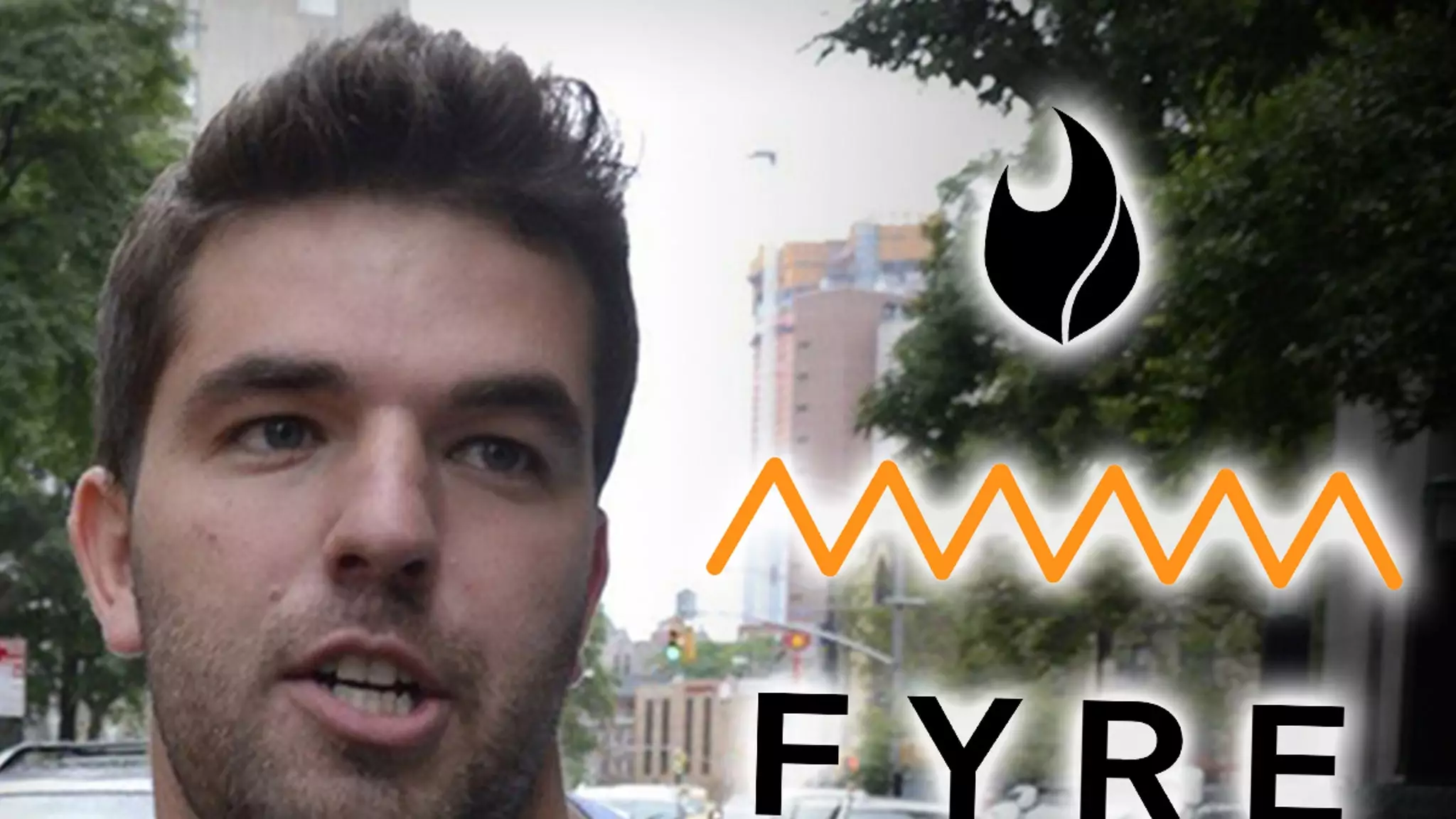The infamous Fyre Festival, which once epitomized the disastrous intersection of privilege and incompetence, seems poised to make a return—but this time, it finds itself entangled in governmental bureaucracy. Originally slated to take place in the picturesque Playa del Carmen, Mexico, Fyre Festival 2.0 has hit yet another snag, with organizers claiming governmental betrayal as their stumbling block. The audacity of the entire situation raises questions about the competence and transparency of both the festival’s management and the local government. Is this yet another case of a dream revisited, or are we looking at a train wreck in slow motion?
Organizers of the ill-fated festival have taken to social media to lament their fate, expressing disbelief at the sudden change in government stance. Nick, a producer involved in the planning, conveyed his outrage through messages that speak to a deep-seated frustration: “They f***ed us.” Such raw sentiment not only highlights the apparent breach of trust but also serves as a grim reminder that communication in the planning stages seemed to have crumbled under pressure. For a project that has already left a stain on the music festival landscape, this miscommunication appears to be an all-too-familiar narrative.
Promises of Support Turned Sour
One striking aspect of this debacle is the disparity between the initial governmental endorsements and the current disavowals. According to Nick, the Mexican government had once displayed support on social media platforms; however, when the proverbial rubber met the road, officials claimed ignorance. This flip-flopping casts a shadow over the integrity of those in power, raising eyebrows about the efficacy of their endorsement processes. Are local governments truly equipped to handle the complexities of major events, or are they simply lured in by potential financial gains before backing out at the first sign of distress?
Billy McFarland, the festival’s infamous founder, continues to assert that everything is under control. Despite the government’s firm statement declaring that “no such event with that name will take place,” McFarland maintains that he possesses documentation of communication with officials—emails, receipts, all peppered with optimism about the festival’s future. But can we genuinely believe such assurances? After all, McFarland’s history is marred by unprecedented deception and failed promises, making every new claim feel less like a credible statement and more like wishful thinking.
Could History Repeat Itself?
Anticipation surrounding Fyre Festival 2.0 must be weighed against the catastrophic fallout of the original event. The festival that promised luxury and exclusivity devolved into chaos, leaving attendees stranded and enraged. While Billy attempts to paint a picture of redemption by involving “real music professionals” and “real artists,” skepticism pervades the air. Participant Antonio Brown’s teasing of an imminent lineup offers a glimmer of hope but lacks substantial backing, rendering it hollow in the grand scheme of things.
This most recent controversy intensifies concerns about whether lessons have been learned from the adversities of the past. Organizers are hurriedly scrambling to secure permits and assurances, but the ticking clock adds a layer of urgency that fosters unhealthy decision-making. There is an inherent danger in hastily transported events; when the primary focus shifts to salvaging a reputation rather than meticulous planning, you can almost guarantee the chaos will resurface.
A Cautionary Tale for Future Events
The saga of Fyre Festival extends far beyond its immediate implications. It stands as a cautionary tale for future event organizers, particularly those leaning on social media as their primary engagement tool. The blend of glamor and reality, exacerbated by social media’s unrealistic portrayal of events, creates a fertile ground for disillusionment. The blurred lines of legitimacy can easily trick not just the potential attendees but also the very authorities meant to regulate such gatherings.
As whispers about Fyre Festival 2.0 reverberate throughout the industry, only time will tell if this venture will emerge as yet another high-profile casualty or transcend the shackles of its predecessor. In an age where planning and credibility are paramount, perhaps this will stand as a pivotal moment for festival organizers to reconsider their approach—before it all goes up in smoke once again.

